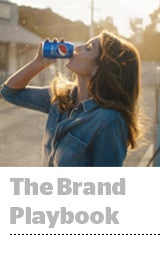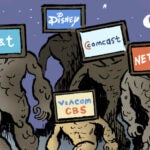 Some Super Bowl predictions are easy: The big game will attract the largest US TV audience of the year and drive a single-day bonanza of food and beverage purchases.
Some Super Bowl predictions are easy: The big game will attract the largest US TV audience of the year and drive a single-day bonanza of food and beverage purchases.
But for brands like Pepsi, which are placing the biggest marketing bets of the year over Super Bowl weekend, establishing ROI is no sure thing.
Brands that are investing in large sports sponsorships solely for broad awareness and reach “are often placing bets where they don’t know if it will pay out or not,” said Greg Lyons, CMO of PepsiCo’s North American beverage business.
But Pepsi must be feeling good about its chances, seeing as it’s sponsoring the Super Bowl halftime show and bought a minute and a half of commercial time (at more than $5 million per 30-second slot).
Marketing campaigns built around tent-pole events like the Super Bowl have become more complicated – but also more measurable.
Pepsi and its stable of in–Super Bowl brands, like Mountain Dew, Doritos and Tostitos, are now backed by a “mission control group” that monitors live social media data and coordinates brand sponsors, agencies and in-house teams across different channels, Lyons said.
“We need whole teams focused on the conversation and data generated during the game,” said Frito-Lay CMO Jennifer Saenz. “That’s a big difference between a campaign like this now and one even in recent years.”
A brand the size of Pepsi “needs the mass media scale to move the business at all,” Saenz said. “But we need to balance that with audience insights that come through first-party knowledge.”
This year’s Super Bowl marks the first collaborative television or cross-channel campaign between Pepsi’s beverage business and Frito-Lay, the company’s snack food division.
The joint approach doesn’t just split costs between the two groups; it improves advertising by de-duplicating audiences across brands and helping to avoid bidding against itself for valuable online inventory during the game.
Social is the new data fire hose in the marketing equation. But the Super Bowl is also a unique opportunity for a brand like Pepsi, which, by the nature of its retail-based distribution, doesn’t see a lot of direct consumer data, such as store transactions or home addresses from direct-to-consumer deliveries.
Tostitos is running a campaign that dynamically creates personalized video invites for people hosting Super Bowl parties to send to friends. The brand exposure within the videos (and the reminders for to everyone to bring dip) may not move the needle for Pepsi’s snack business, but it’s an invaluable source of first-party data, because hosts enter their names, email addresses and home addresses in order to create the content.
“In this media landscape, you can make sure you’re getting reach,” Saenz said. “But you need to evaluate that against the right level of personalization and conversation in a campaign.”














